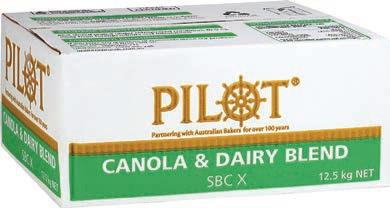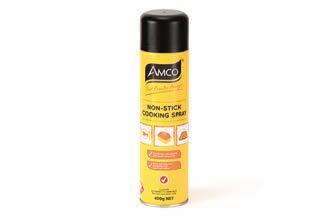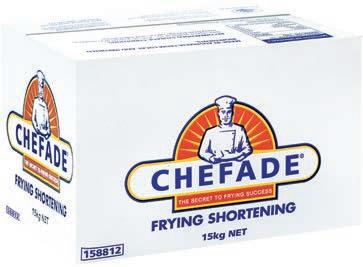
14 minute read
Resposible Trader
SINGLE-USE FACE MASKS
Here are the key things you and your business need as we head into the new normal of pandemic preparedness. FACE MASKS
The Government has advised wearing masks in public under Alert Level 3. All responsible businesses trading and working in Level 3 should also provide face masks to their employees.
Wearing a face mask can reduce the risk of people who have COVID-19, spreading the virus to others. A face mask can help stop infectious droplets spreading when someone speaks, laughs, coughs or sneezes. An experiment using high-speed video found that hundreds of droplets ranging from 20 to 500 micrometres were generated when saying a simple phrase, but that nearly all these droplets were blocked when the mouth was covered by a cloth.
The protection of your employee’s physical health and the safety of your customers should be a top priority at all times. During a global pandemic, providing vital protective gear such as face masks is not only essential; it also sends a clear message to your team and your customer base that you are a responsible trader.
A face mask is an instant and clear sign of your willingness to be part of the team of five million, all working together to stomp this virus out. REUSABLE FACE MASKS
Hill Hats, a hat manufacturer with a history dating back to 1875, has turned its hand to reusable face masks since the outbreak of the novel coronavirus. Hills Face Masks are stylish, handcrafted and reusable. Designed to help reduce the spread of COVID-19 and the cold and flu, proudly Kiwi made for a world of faces.
Available in a range of classic and eye-catching linen or cotton natural fabrics free of synthetics. Each Hills Face Mask is constructed with multiple layers including an interchangeable Hills non-woven material filter and an antibacterial technical fabric to absorb moisture from the skin. The mask and Hills filter are all washable and recyclable.
Like face masks, it is important to provide your staff with disposable gloves, particularly with the handling of any food products. Gloves should be provided in varying sizes, and non-latex versions should be made available as latex allergies are common. Protective gear provides a tangible signal to your customers of the processes you have put into place to protect them, not only in the event of a pandemic but at all times, providing them with the best quality service possible.
Gilmours, New Zealand’s largest supplier of wholesale food and beverage products is your one-stop-shop for your Level 3 essentials like face masks, gloves, and hand sanitiser. Gilmours understands your needs and challenges, because they’re 100 percent New Zealand Owned and Operated. The team at Gilmours not only provide you with a range that’s relevant to your business, but they also provide solutions outside of simply product and price.
While Hills Face Masks are non-medical grade and have no standard, they are recognised as an essential manufacturing service item. Hills Face Masks, are a socially responsible choice for Personal Protective
These are a great option for foodservice as they are simply disposed of after use, cutting down on handling in an environment where sanitation is so important. TERRA Surgical Masks are available at Gilmours. These masks are 3-ply, latex-free, and help reduce the
THE RESPONSIBLE TRADER Checklist
Now more than ever, Kiwi consumers will only spend their money with brands and businesses they can trust. Protect yourself, your staff, and your customer base by being a responsible trader.
THERE ARE TWO MAIN ROUTES YOU CAN GO WHEN PROVIDING FACE MASKS:
GLOVES
exposure to airborne bacteria.
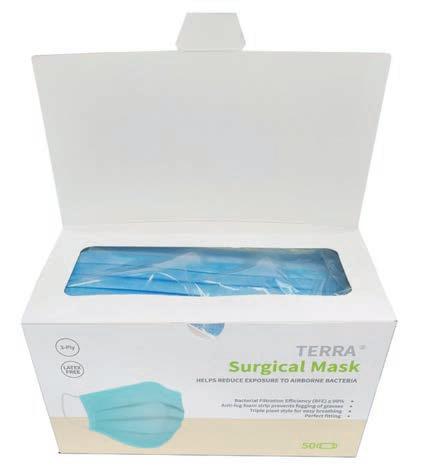
DISINFECTING TOUCH POINTS

Disinfecting is the killing of pathogens on surfaces or objects. This process does not necessarily clean dirty surfaces, but by killing germs on a surface after cleaning, it further lowers the risk of spreading infection.
Many people will mistakenly interchange disinfecting and sanitising, but it is important to note two differences: effectiveness and application.
A disinfectant cleaner may remove more germs than sanitising, making it more effective in killing pathogens; however, disinfectants are not generally food safe. Disinfectants must be rinsed once the dwell time, or amount of time the surface must remain visibly wet, is achieved.
In contrast , food safe sanitisers remove pathogens to a safe level after cleaning and food products may be placed on the surface immediately after the dwell time.
Such sanitisers may not remove pathogens as thoroughly as a disinfectant, the application process is simpler because they do not require a rinse.
The key areas to focus on should be staff and guest touchpoints. Staff should be disinfecting, not just sanitising, the areas that employees and guests touch frequently. This includes all door handles,
rails and non-food contact countertops.
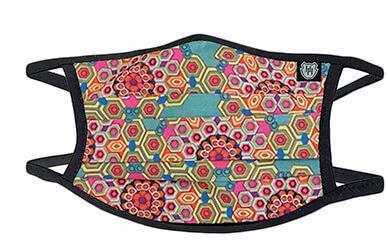
Equipment (PPE).
Please note that employees must be taught to handle reusable face masks with care and clean them properly between uses.

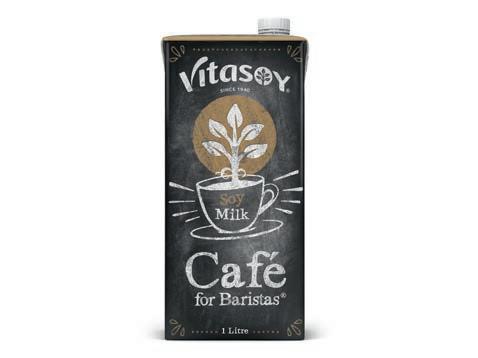
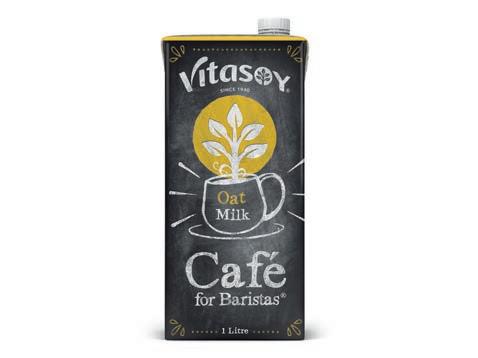
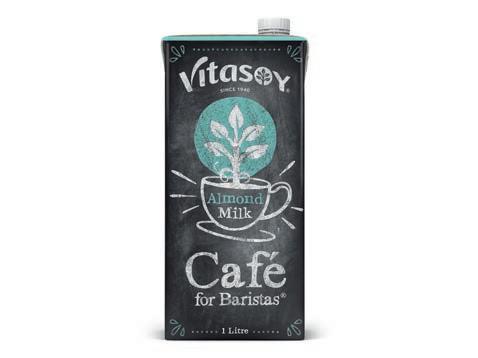


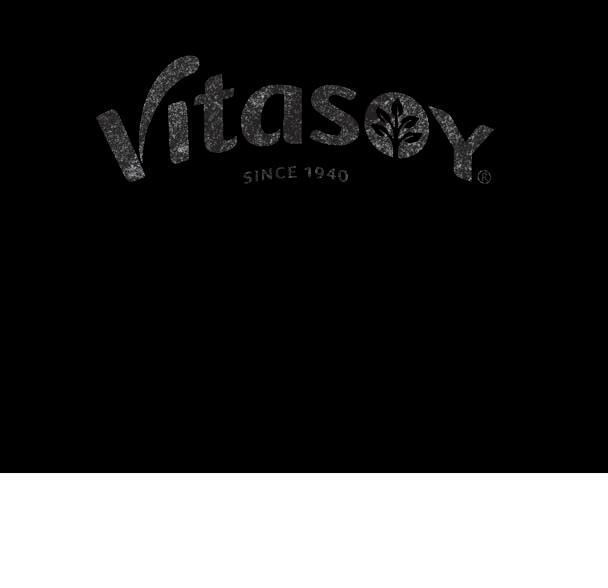
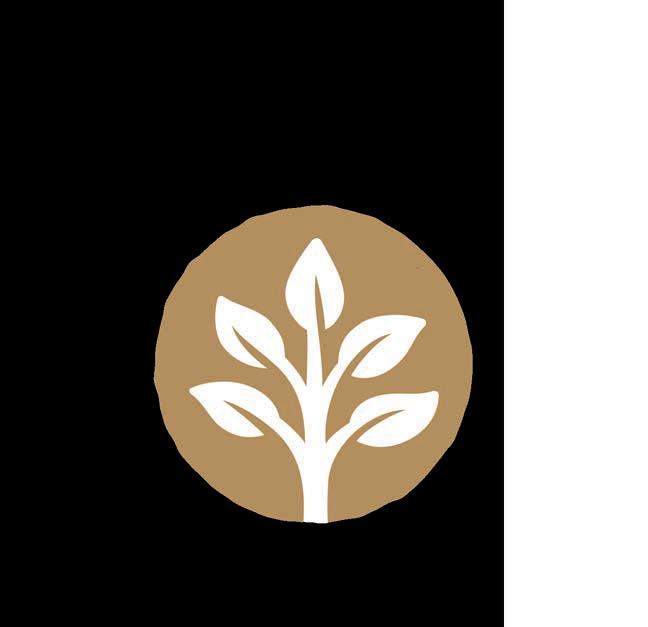

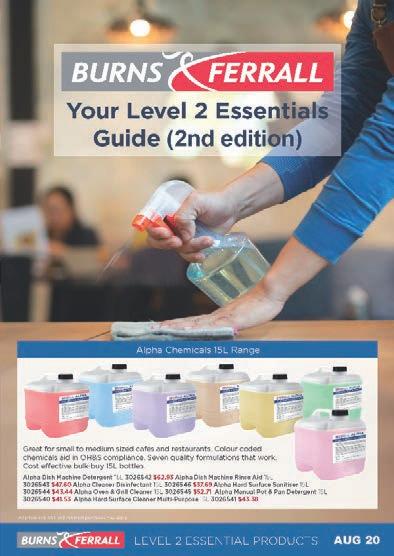
SANITISER STATIONS
It is important to encourage the regular use of hand sanitiser and sanitiser stations among your customers and staff. Hand sanitation should become a normal part of the daily routine. As a responsible trader, you can make this easy by installing sanitising stations at the front entrance of your establishment, as well as back of house areas.
Burns & Ferrall, the innovative heart of hospitality, have your commercial hand sanitiser needs covered with a perfect stainless steel, refillable sanitiser dispenser and dispenser stand. Made from 0.9mm 304 grade stainless steel the lockable MENTAL HEALTH & WELLBEING
Aside from the practical defences against the pandemic, it is also important to look after your mental health and the mental wellbeing of your staff. Hospitality and foodservice are stressful industries at the best of times, but there are resources available to you. Don’t be afraid to reach out.
In our pre-pandemic world, most of us would never have thought of foodservice staff as essential workers; now there is a greater understanding of the importance of our once thriving Kiwi hospitality sector and those who work in it. As well as guidelines on safety protocols, The Ministry of Health urges employers to look after the wellbeing of employees, including promoting healthy eating, exercise, getting enough sleep and taking time to unwind. CREATE A PSYCHOLOGICALLY HEALTHY WORKPLACE
It is important to consider what stressors your workers are facing. Are they responsible for childcare or eldercare? Are they managing their children’s distanced learning? Are they taking public transportation to work? Do they have any underlying health conditions making them more vulnerable to the virus?
All of these factors can have a profound impact on an employee’s mental health and ability to focus
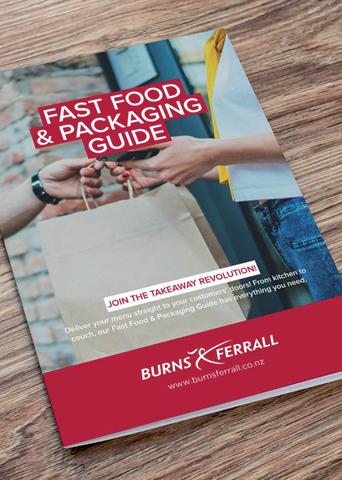
Stoddart cabinet dispenser has an additional locking shroud to prevent out of hours use.
The dispenser is theft, vandal and tamperresistant with a 1-litre holding capacity, and can be refilled from any container (large or small). The dispenser can be wall-mounted or stand mounted.
T he hand sanitiser dispenser stand has an anti-tip base and was designed to suit the Stoddart dispenser as well as other manufactured dispensers. The stand is easy to clean with hygienic, stainless steel surfaces with optional angled brackets for securing to the ground. at work. A solution is to implement mental wellbeing checks – ask your employees how they are doing. What are they struggling with? What do they need to feel safe at work? Showing genuine concern will go a long way towards building trust and engagement. KEEP GOOD COMMUNICATION
At times of crisis and uncertainty, you can’t overcommunicate with your people. Lack of information can lead to an increase in anxiety and stress and a decrease in engagement and performance. When information is not forthcoming, people will often “fill in the blanks” with their own fears.
Be clear about direction. Be transparent when you can. If you don’t know something, share that too. Workers will appreciate your honesty. Lead with a focus on empathy, compassion and humility.
To support the mental health of New Zealanders at this time, The Mental Health Foundation has developed a new online resource Looking after mental health and wellbeing during Covid-19. The new section on the MHF website includes tips to look after your wellbeing and answers some of the questions the foundation has been getting.
Visit www.mentalhealth.org.nz to access these resources and remember that anyone in New Zealand can free call or text 1737 at any time to speak to a trained counsellor, it’s free and confidential.
For a long time now, there has been a great deal of discussion regarding the two main types of cleaning products: biological and non-biological. You might have even heard of the latter being referred to as chemical-based cleaning products, and this name seems to have a given people a negative perception of any chemical cleaning products.
The standard argument used in favour of biological cleaning products is that they are more environmentally friendly. This type of product is generally safer and less harmful to people using the product and for people in the general area. Healthier contents within biological substances are also known to replace bacteria and diseases, helping to better halt the spread of germs and other potentially lifethreatening bacteria.
Chemical cleaning products tend to need to be used with higher temperatures though and aren’t as naturally geared towards breaking up dirt in the same way as biological cleaners. The one advantage they do have however is that they are less likely to set off allergies with their odour neutralising features.
T here is room in any cleaning programme for both kinds of cleaning products, but you need to ensure that your staff have trained to use both kinds of products responsibly, they also need to know when


each one can be best utilised most efficiently.
TAKEAWAY/DELIVERY OPTIONS
The new limits placed on restaurant and café venues around the country makes joining the fast food & takeaway revolution essential. From kitchen to couch, the Fast
Food & Packaging Guide from Burns &
Ferrall has everything you need to get started today.
Over the last few years, we have seen food-delivery services rise in popularity.
Customers flock to easy-to-use ordering apps and websites for the convenience, but also the broad selection of cuisine types on offer. Ordering food from home has become a vital part of our new normal. There has never been a more essential time to start or increase your activity within the fooddelivery world. Future-proof your business today by getting set up to deliver your menu straight to your customers’ doors. Burns &
Ferrall, the innovative heart of hospitality are here to help, view the Fast Food &
Packaging Guide today.
To assist with ensuring that safety and hygiene standards are met for both your customers and staff, Burns & Ferrall also created Your Level 2 Essentials Guide. This updated edition features a range of cleaning and sanitising solutions for both the kitchen and washroom, along with disposable packaging and eco-conscious food wraps.
THE QR CODE QUANDARY
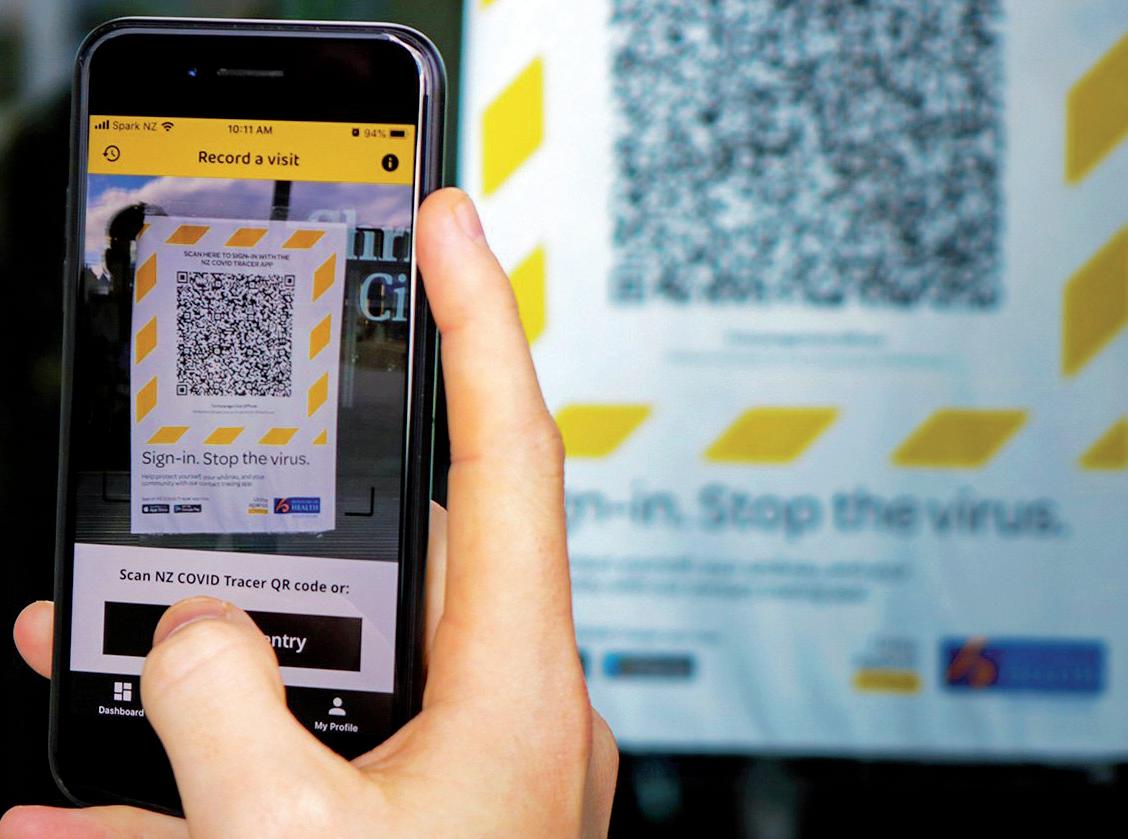
The Government has made it mandatory for all operating businesses to display the New Zealand COVID Tracer App QR Code posters. Companies who do not display the posters can face a penalty or fine, but while it might be mandatory for business owners to post the QR code, it is not compulsory for Kiwis to use it.
THE AUGUST OUTBREAK of community transmission has shown the importance of contact tracing in limiting the spread of the virus and in the first 48 hours after the confirmed cases were announced over 300,000 more New Zealanders downloaded the government app. It is heartening to see so many people react to the news of community transmission by doing the responsible thing. However, we have only just surpassed 1,000,000 registered users, the number a tech expert revealed was needed to make the app successful. What is stopping so many Kiwis from using it?
The Government has had months to prepare the app in the event of a second wave, early users of the technology complained that it lacked usability or they couldn’t download it. Ease of use should surely be a top priority. New Zealand has long been promised a gold standard contact tracing system to manage outbreaks of the coronavirus, whether or not this is what we’ve been given remains to be seen.
Dr Ayesha Verrall, an infectious disease expert, wrote in her audit of the country’s contact tracing systems (earlier this year) that public health measures of testing, tracing and isolating COVID-19 cases are potentially as effective as a vaccine. The audit found the system to be woefully inadequate and so the Government promised to commit resources to improve it.
The New Zealand COVID Tracer app was initially released about a week after the country’s transition from Alert Level 3 to level 2, in May. By then, the market had already been flooded with private-sector tools, and the threat of COVID-19 seemed further away. At the end of June, the average user had scanned just two QR code posters in total.
For the first time, this month, the ministry sent out an alert via the app, to let users know if they’d been scanned into locations at the same time as those who later tested positive. Experts, however, remain unconvinced about the app’s longterm potential to aid contact tracing efforts.
Many are looking to CovidCard, a Bluetooth card being trialled in Rotorua. The cards are designed to automatically detect others within close proximity, meaning if someone is later diagnosed with the virus, potential contacts can be easily traced.
“We’re used to carrying cards for identification purposes. The reason there’s such low uptake of the app is partly that it’s not a very natural thing to do, and it’s hard to see what the actual benefit is,” noted AUT Professor, Dave Parry.
The CovidCard would also be accessible to people who do not have a smartphone which is needed to access the Government app.
There is no real motivation for people to scan the government app. Parry has suggested bars and restaurants check if people have scanned in when they go to pay, but this responsibility of contact tracing should not be placed on establishment owners who have already had to pivot their businesses.
Hospitality is an industry of team players; we are a resilient and adaptable lot who will do our best to get the industry back to what it was pre-pandemic. Download and place the mandatory poster and encourage your customers to use it. Remind them that we are a team of five million and that if we all do our part, the sooner restrictions can be lifted, and the sooner we can get back to building the excellent foodservice sector of Aotearoa.
Download your unique QR Code poster at www.qrform.tracing. covid19.govt.nz.
Trusted by Customers For Over 100 Years GrainCorp is proud to be a leading international agribusiness with diversified operations that span four continents and supply customers in over 30 countries. It provides a diverse range of products and services to its valued customers across the food supply chain.
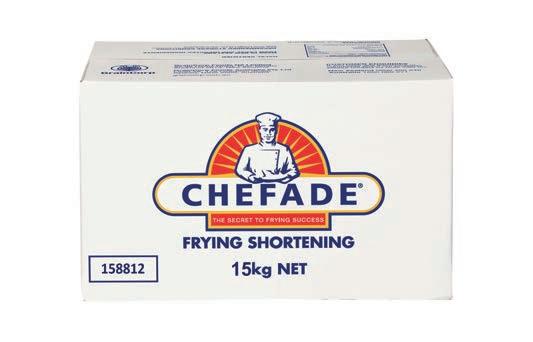
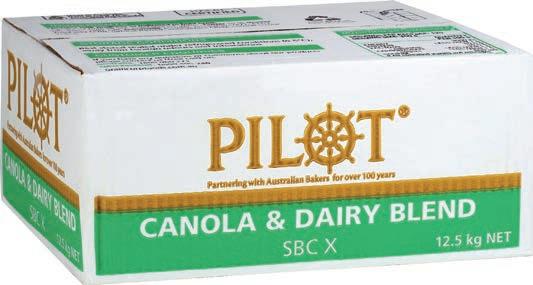
GC Half Page 210x155 Aged Plus.pdf 1 27/07/2020 10:59:39 AM GRAINCORP FOODS is New Zealand and Australia’s largest refiner of edible fats and oils, with a combined capacity of 300,000 tonnes per year, across three manufacturing sites, and a heritage of over 100 years to connect growers to domestic and international customers.
GrainCorp New Zealand offers a wide variety of oil types used in an extensive range of complex product formulations, designed to meet the many applications and functional needs of the food industry in Aotearoa.
GrainCorp Foods supply a broad range of quality fats and oils both directly and through its distribution partners. Products are available in a range of bulk and packaged products to food manufacturers, wholesalers,

bakers, quick service restaurants, foodservice and retail customers throughout New Zealand.
Products include:
• Deep frying shortenings • General-purpose liquid oils • P astry, cake and biscuit margarines • Ca tering spreads • Confectionery fats • Spray oil for pan release and light frying
The GrainCorp team work closely with its customers to develop tailored solutions by drawing on its product and technology expertise. For further information and samples please contactcsfoods@graincorp.co.nz or telephone 0800 495 246.
Fats & Oils Specialist Delivering high end solutions for our customers
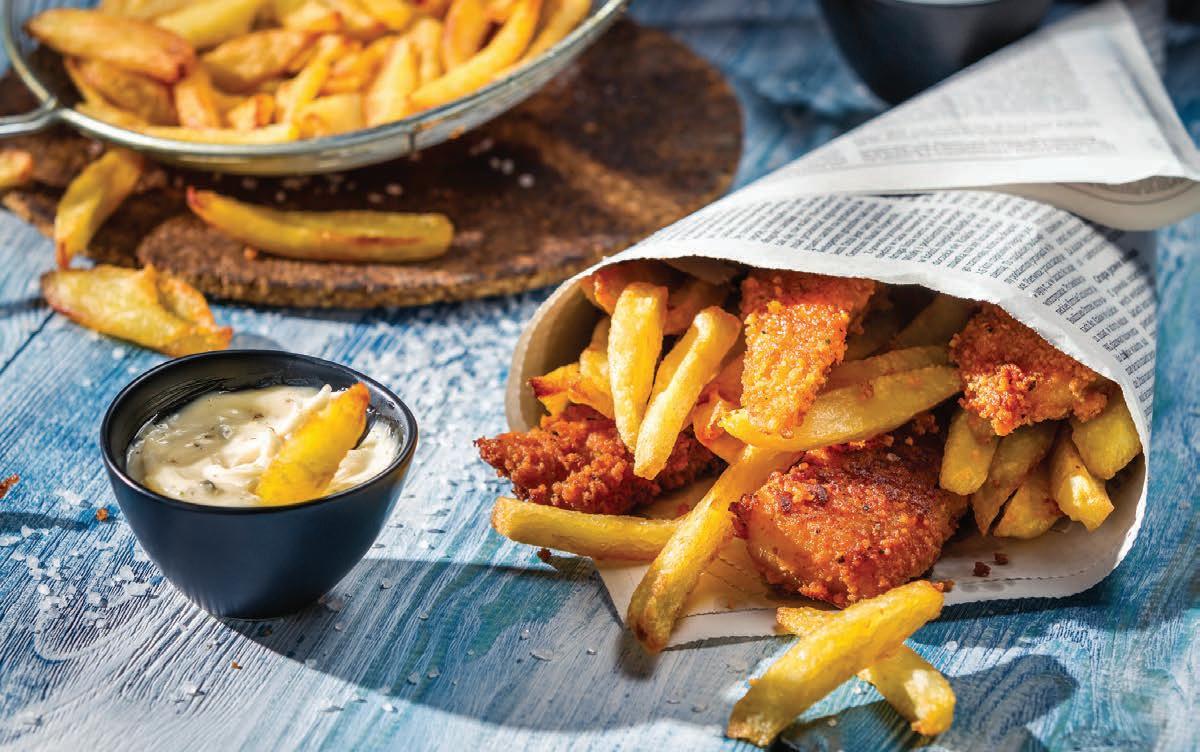
Longer
